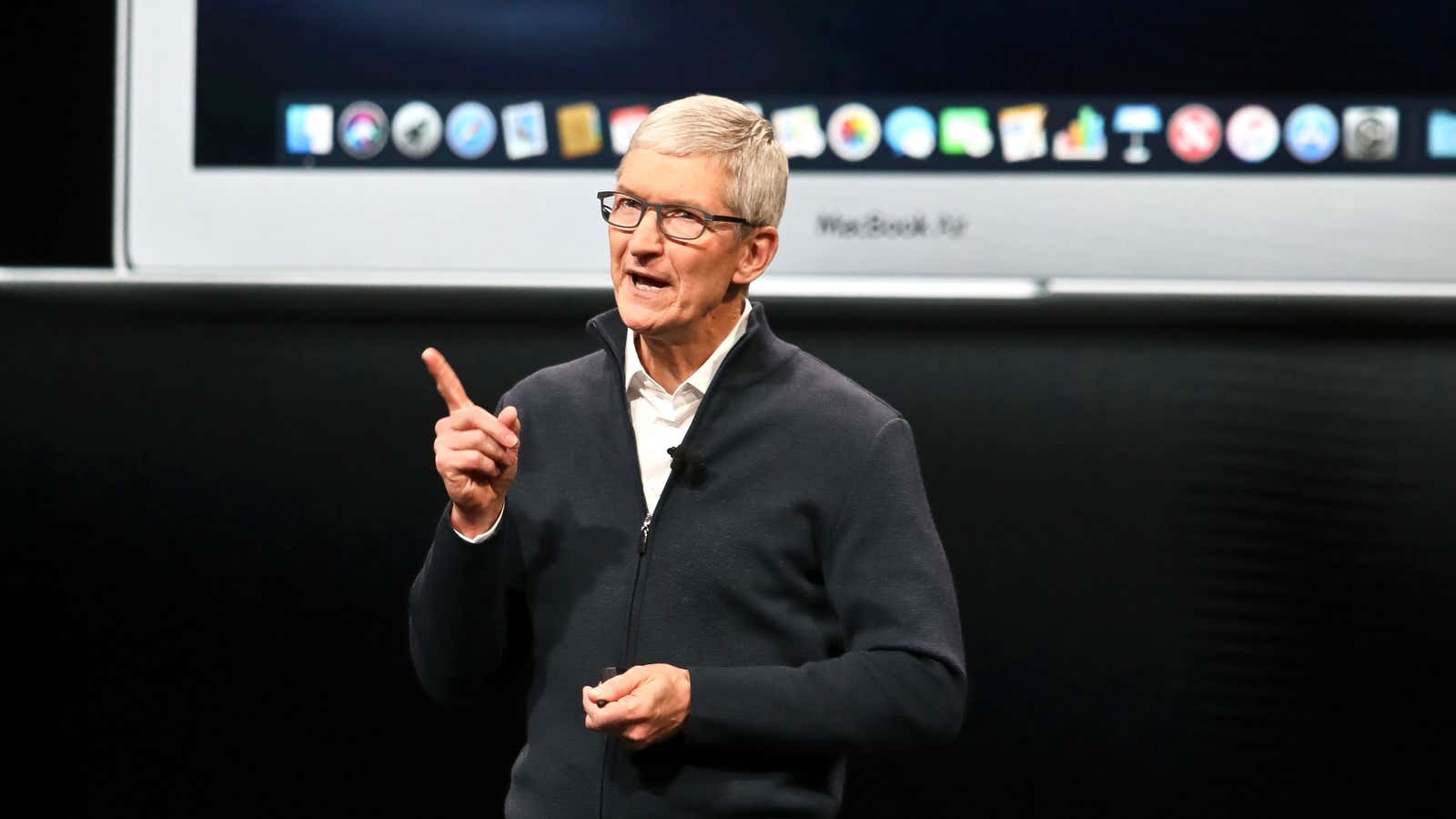Apple will report its fourth-quarter earnings Nov. 1 (its fiscal year begins in October), and as ever, it’s likely that even in one of the company’s slower quarters, it will have sold heaps of iPhones and generated a ton of revenue.
In its last report, Apple said it expected to generate between $60 billion and $62 billion in the fourth quarter, which would be a jump of roughly 15% over the same quarter last year at the low end. Analysts are expecting sales of $61.6 billion for the quarter, which saw the release of the iPhone Xs phones, and the Apple Watch Series 4, both of which have been well-received.
But the new devices only hit shelves at the end of September, so it’s not likely they’ll have much of an impact on the company’s earnings (although that likely won’t stop CEO Tim Cook from effusing about them on the call). Instead, the best number to focus on to gauge Apple’s longterm health right now is how its services business is doing.
Beyond all the new products that Apple has released since Cook took over as CEO in 2011, perhaps the company’s most impressive feat is the success it’s had locking people into its ecosystem. Its services revenue—which includes music, games, and apps sales, subscription fees, AppleCare, and Apple Pay revenue—has been on a tear in recent quarters. Apple has, through a combination of its own offerings and others’, created a revenue stream that doesn’t dip seasonally, and is generally trending upwards.
In the last four quarters alone, services have generated $35.7 billion in revenue for Apple—that’s enough to make the business a Fortune 100 company on its own, and is more than Nike or Coca-Cola generated for the year.
Apple will still sell a boatload of iPhones (analysts expect around 48 million), but in developing a robust suite of services, subscriptions, and content that people enjoy, the company has found things that people will continue to want to pay for, beyond the new smartphone or laptop they buy every few years.
If Apple is able to keep up this momentum, it may soon get to a point where individual iPhone sales no longer matter.
